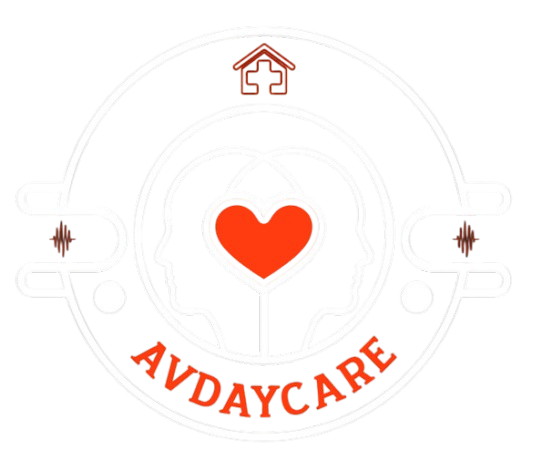
Parents with autistic children remember every trip they’ve ever made to the hospital, and they can recount every word the physician uttered while confirming the Autistic Spectrum Disorder (ASD) diagnosis for their child. There are plenty of agonizing moments as parents make a mental shift and begin to actively seek an understanding of the diagnosis and what it means for their child.
There have been tremendous improvements in the diagnosis and treatment approaches for ASD, even though it is still not clear what causes the condition. We all have or know someone who has an autistic child. Learning how to help them cope goes a long way in ensuring successful management of the condition. More importantly, it is important to understand that, with the right intervention, your child can live a near-normal life.
Identifying autism

Autism is a developmental and neurological disorder that can occur in people of all backgrounds, races and ethnicity. The condition affects how a person behaves and communicates and presents in a wide variety of symptoms and severity. Symptoms of ASD can be seen as early as two years of age and may continue throughout one’s life, with varying degrees of severity at different ages.
Symptoms of Autism
Signs and symptoms are broadly categorized into three groups:
- Communication & Interaction Behavioral Symptoms
- Repetitive & Restrictive Behavioral Symptoms
- Symptoms that inhibit a person’s ability to function normally
Communication & Behavioral Symptoms
Some common signs that your child has trouble communicating and interacting with others in a normal way include:
- Inability to pay attention. They may not look at other people or listen to them. They also don’t make eye contact, and when they do it’s inconsistent and for very short moments.
- Inability to understand what others are doing.
- Lack of coordination in movements, gestures, and facial expressions.
- Failure or slowness in responding when someone tries to catch their attention either by calling out their name or in other ways.
Repetitive Behavioral Symptoms
This includes:
- Intense focus and interest in specific topics, things or activities.
- Constant repetition of words or phrases.
- Higher or lower than normal response to sensory input.
How Autism is Diagnosed

Autism can be diagnosed at any age. People who grew up without autistic symptoms may get the diagnosis later in life when they begin to display the symptoms. It could be that they’ve always had the condition, but their symptoms were too mild to notice. This is what makes autism such a unique health condition. Patients can exhibit only a few of the symptoms or they can have the entire list of symptoms in varying degrees.
To rule out autism during early life, every child is assessed at 9-18 months, 24 months and 30 months. If developmental problems are identified during this process, the children undergo a second evaluation to determine language abilities, cognitive level and age-appropriate skills.
Autistic Children are also Gifted
People with autism oftenhave aptitudes that regular people don’t. Your child may:
- Remember details vividly.
- Have a great ability to remember information much longer than other kids.
- Excel in specific fields like art, math, science, etc.
- Have excellent auditory and visual recognition capabilities.
Sleep Issues and Autism
Children on the spectrum often have difficulty falling asleep and staying asleep. The slightest disturbances can awaken them, and it becomes a challenge for them to go back to sleep. Poor sleep may aggravate autism symptoms. Research shows that lack of sleep causes:

- Irritability
- Aggression
- Hyperactivity
- Depression
- Poor cognitive performance
- More behavioral problems
It’s important to take deliberate actions that will boost the ability to sleep in autism children. Some useful steps include: avoidance of sugar and caffeine before bed, creating a relaxing mood as you get closer to bedtime, using blackout curtains to keep the light out in the bedroom, eliminating all forms of noise by using heavy carpets and other noise absorbing mechanisms, and establishing a bedtime routine.
As your child adjusts to the systemic procession of events that happens just before bedtime, the brain takes note and sends signals for the body to prepare for sleep. A relaxing mood gets rid of stimulants that make it hard for the child to fall asleep. You can achieve this by turning off the TV, putting away the phone, not allowing video games and other forms of stimulating play, putting on soothing music, giving them a massage, or reading to them. Do this at least one hour before bedtime.
Food Therapy and Diet for Autism
The effects of food therapy on autism cannot be undermined. Although no conclusive research findings have been made to support the impact of specific food categories on autism, many people report seeing improvements in their children’s behavior when they gave them some foods. Foods that have been found to help improve autistic symptoms include:
- Gluten and casein free foods. No milk and other dairy products, wheat, oats, barley.
- Increased intake of vitamins and minerals. Use supplements to get the recommended daily levels.
- Seafood, meat, and vegetable oils rich in Omega-3 and Omega-6.

Because it may be impossible to get all the nutrients an autistic child needs from food alone especially if you’ve eliminated some classes of foods from their diet, it’s important to give them supplements. Consult your doctor on the best supplements to give your child.
As your child grows, their nutritional needs will also change. Adjust their diet accordingly, always aiming to provide a wide variety of foods. You may reintroduce the foods you eliminated,just one food at a time, and observe any resultant changes in your child.
The Role of Enzymes and Digestion in Autism
Research shows a deep connection between the gut and the brain in ASD patients. Normally, autistic kids are unable to process nutrients because their bodies do not have the enzymes to break down the food they eat. This is why you may try diet after diet with little positive results.
The gut-brain connection means autistic children canbenefit from digestive enzymes. One research found that giving digestive enzymes to a group of ASD patients for three months significantly improved their gastrointestinal symptoms, general impression autistic score, emotional response, and general response.
Getting your child started on digestive enzymes will certainly help them digest food better, and as the body begins to absorb the nutrients it requires, a lot of the autism symptoms you’ve become accustomed to will lessen.








